What People are Commenting
No Mass in Glasgow & Schismatic Pope
Francis Will Have No Time for Mass in Glasgow
Dear TIA,
Francis has a trip planned for Glasgow, Scotland, in November and the schedule is being released. It is ABSOLUTELY URGENT that he be present at the COP Climate Conference in order to force people to “change course” on the environment.
He also finds time to attend a meeting of Scottish Bishop’s Conference during his trip, to encourage them to keep on track with his Covid and ecology agendas.
However, the window of time is “so short” that he cannot say a public Mass for the people of Glasgow. Absolutely not.
Trying to digest that is difficult. A Pope who considers climate change more important than the Sacraments, who ignores the spiritual needs of a people to concentrate instead on supposed physical safety, really just to implement the New World Order.
If a person can digest this, then he has a strong stomach and has lost his Catholic sense.
Regards to all at TIA, keep up your good work.
Viva Cristo Rey!
M.G.
Francis has a trip planned for Glasgow, Scotland, in November and the schedule is being released. It is ABSOLUTELY URGENT that he be present at the COP Climate Conference in order to force people to “change course” on the environment.
He also finds time to attend a meeting of Scottish Bishop’s Conference during his trip, to encourage them to keep on track with his Covid and ecology agendas.
However, the window of time is “so short” that he cannot say a public Mass for the people of Glasgow. Absolutely not.
Trying to digest that is difficult. A Pope who considers climate change more important than the Sacraments, who ignores the spiritual needs of a people to concentrate instead on supposed physical safety, really just to implement the New World Order.
If a person can digest this, then he has a strong stomach and has lost his Catholic sense.
Regards to all at TIA, keep up your good work.
Viva Cristo Rey!
M.G.
______________________
Card. Juan de Torquemada: Papal Omissions
Re: By Departing from Traditional Worship, a Pope Falls into Schism
Dear TIA,
Card. Juan de Torquemada draws attention to potentially schismatic papal omissions, viz. the failure to perform or observe practices comprising ‘similar things which have been decreed in a general way for perpetual usage’.
An example of this in the current pontificate would be the failure of Pope Francis to properly make the epiclesis gesture to invoke the Holy Spirit prior to the consecration in his Mass. He forms a fist-type grip on the chalice and paten instead of holding his hands together above the elements in the required manner. Notoriously, he also refuses to genuflect or to kneel before the Blessed Sacrament.
Yours in Jesus, Mary and Joseph.
N.M.
Dear TIA,
Card. Juan de Torquemada draws attention to potentially schismatic papal omissions, viz. the failure to perform or observe practices comprising ‘similar things which have been decreed in a general way for perpetual usage’.
An example of this in the current pontificate would be the failure of Pope Francis to properly make the epiclesis gesture to invoke the Holy Spirit prior to the consecration in his Mass. He forms a fist-type grip on the chalice and paten instead of holding his hands together above the elements in the required manner. Notoriously, he also refuses to genuflect or to kneel before the Blessed Sacrament.
Yours in Jesus, Mary and Joseph.
N.M.
______________________
Schismatic Pope? A Question for TIA
Greetings TIA,
I read with great interest your recent post, "By Departing from Traditional Worship, a Pope Falls into Schism” (14 Aug 2021). Although, it has left me a bit confused.
It’s stated, for example, that according to past theologians, "a Pope who separates himself from the traditional ecclesiastical cult of the Church becomes schismatic, although without losing the office of the Papacy” (emphasis mine).
Yet, in the cited text, it’s argued that the “authors who admit the possibility of a schismatic Pope, in general do not hesitate to affirm that in such a hypothesis, as in that of a Pope heretic, the Pontiff loses the charge. The reason for this is evident: schismatics are excluded from the Church, in the same way as heretics” (Silveira, p. 182; emphasis mine).
Thus, the above article appears to be in conflict with its own sources – the former seems to hold that a schismatic pope has traditionally been viewed as retaining the papacy, whereas the latter appears to hold the opposite, which is that theologians have generally held that a schismatic pope ceases to be Pope.
If TIA could clarify this apparent conflict, I would be grateful. Perhaps I’m misunderstanding something?
In any case, I look forward to your reply and thank you for all that you do.
All best,
T.L.
TIA responds:
Dear T.L.,
Let us distinguish three realities:
1. The fact that a pope by separating himself from the tradition of the Church becomes schismatic;
2. The consequences of this act regarding his juridical status as pope;
3. What we at TIA wrote (in navy font) in the introductory words for our readers.
We will address each point separately, stressing that they must be distinguished independently in order not to mix up the subjects and increase the enormous confusion that already exists caused by the actions of the Conciliar Popes.
1. In the text of Card. Juan de Torquemada, it seems clear that in the mentioned conditions, a pope becomes schismatic. It also seems clear that by revoking the Perpetual Mass, Pope Francis is included in this category.
2. We believe that the fact of being schismatic is very grave, but less grave than the fact of being a heretic. Now then, since John XXIII, the Conciliar Popes have all fallen into the heresy of universal salvation, which defends that all religions lead to Heaven.
For a graver reason than that of being a schismatic pope, the heretical pope loses his pontificate. However, there is no unanimous sentence on when he does so. St. Robert Bellarmine studied five different positions on this topic. The most probable is that the heretic pope loses his pontificate when his heresy becomes public and known by all. However, a new question and new set of discussions arise concerning when a heresy is known by all. You may follow these discussions in the indicated book by A.X. Silveira. The same applies to the schisamtic pope.
This is the theoretical presentation of the problem.
The practical side of this topic is that most probably we will continue in this confused situation until a divine intervention ends the crisis in the Church and restores a Catholic Papacy. Then, a new good Pope will define without a doubt when and in what practical conditions a heretic or schismatic pope loses his pontificate, and the Church will thenceforth be defended from this scourge.
So, until this happens, our way to defend the Catholic doctrine is to resist the bad orientation – either heresy or schism – coming from the bad popes, without pretending that we have the authority to decide when this or that Conciliar Pope stopped being pope.
By resisting the heretic or schismatic Pope and by presenting as respectfully as possible the reasons for such resistance, other Catholics will have access to the true doctrine and may continue to keep the Faith and the Church alive.
We at TIA adopt this position.
3. The brief introductory words – in navy font – could not contain all these explanations. But we readily concede that those words could be more precise. So, instead of saying:
"a Pope who separates himself from the traditional ecclesiastical cult of the Church becomes schismatic, although without losing the office of the Papacy";
We will correct it so that it will hereon read:
"a Pope who separates himself from the traditional ecclesiastical cult of the Church becomes schismatic, although without ipso facto losing the office of the Papacy.”
Thank you for your observation. It helped us to reduce the confusion as much as we can.
Cordially,
TIA correspondence desk
I read with great interest your recent post, "By Departing from Traditional Worship, a Pope Falls into Schism” (14 Aug 2021). Although, it has left me a bit confused.
It’s stated, for example, that according to past theologians, "a Pope who separates himself from the traditional ecclesiastical cult of the Church becomes schismatic, although without losing the office of the Papacy” (emphasis mine).
Yet, in the cited text, it’s argued that the “authors who admit the possibility of a schismatic Pope, in general do not hesitate to affirm that in such a hypothesis, as in that of a Pope heretic, the Pontiff loses the charge. The reason for this is evident: schismatics are excluded from the Church, in the same way as heretics” (Silveira, p. 182; emphasis mine).
Thus, the above article appears to be in conflict with its own sources – the former seems to hold that a schismatic pope has traditionally been viewed as retaining the papacy, whereas the latter appears to hold the opposite, which is that theologians have generally held that a schismatic pope ceases to be Pope.
If TIA could clarify this apparent conflict, I would be grateful. Perhaps I’m misunderstanding something?
In any case, I look forward to your reply and thank you for all that you do.
All best,
T.L.
______________________
TIA responds:
Dear T.L.,
Let us distinguish three realities:
1. The fact that a pope by separating himself from the tradition of the Church becomes schismatic;
2. The consequences of this act regarding his juridical status as pope;
3. What we at TIA wrote (in navy font) in the introductory words for our readers.
We will address each point separately, stressing that they must be distinguished independently in order not to mix up the subjects and increase the enormous confusion that already exists caused by the actions of the Conciliar Popes.
1. In the text of Card. Juan de Torquemada, it seems clear that in the mentioned conditions, a pope becomes schismatic. It also seems clear that by revoking the Perpetual Mass, Pope Francis is included in this category.
2. We believe that the fact of being schismatic is very grave, but less grave than the fact of being a heretic. Now then, since John XXIII, the Conciliar Popes have all fallen into the heresy of universal salvation, which defends that all religions lead to Heaven.
For a graver reason than that of being a schismatic pope, the heretical pope loses his pontificate. However, there is no unanimous sentence on when he does so. St. Robert Bellarmine studied five different positions on this topic. The most probable is that the heretic pope loses his pontificate when his heresy becomes public and known by all. However, a new question and new set of discussions arise concerning when a heresy is known by all. You may follow these discussions in the indicated book by A.X. Silveira. The same applies to the schisamtic pope.
This is the theoretical presentation of the problem.
The practical side of this topic is that most probably we will continue in this confused situation until a divine intervention ends the crisis in the Church and restores a Catholic Papacy. Then, a new good Pope will define without a doubt when and in what practical conditions a heretic or schismatic pope loses his pontificate, and the Church will thenceforth be defended from this scourge.
So, until this happens, our way to defend the Catholic doctrine is to resist the bad orientation – either heresy or schism – coming from the bad popes, without pretending that we have the authority to decide when this or that Conciliar Pope stopped being pope.
By resisting the heretic or schismatic Pope and by presenting as respectfully as possible the reasons for such resistance, other Catholics will have access to the true doctrine and may continue to keep the Faith and the Church alive.
We at TIA adopt this position.
3. The brief introductory words – in navy font – could not contain all these explanations. But we readily concede that those words could be more precise. So, instead of saying:
"a Pope who separates himself from the traditional ecclesiastical cult of the Church becomes schismatic, although without losing the office of the Papacy";
We will correct it so that it will hereon read:
"a Pope who separates himself from the traditional ecclesiastical cult of the Church becomes schismatic, although without ipso facto losing the office of the Papacy.”
Thank you for your observation. It helped us to reduce the confusion as much as we can.
Cordially,
TIA correspondence desk













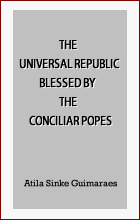
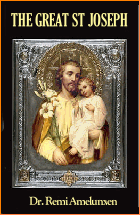
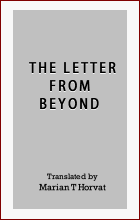



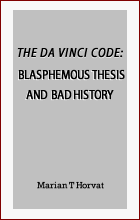
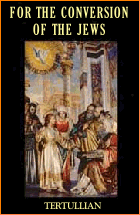
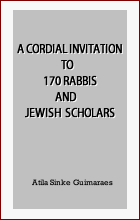
If you are uncertain about the effects of the vaccine, please listen to this lady who is an insider in the Pfizer industry that produces the vaccines.
R.S.